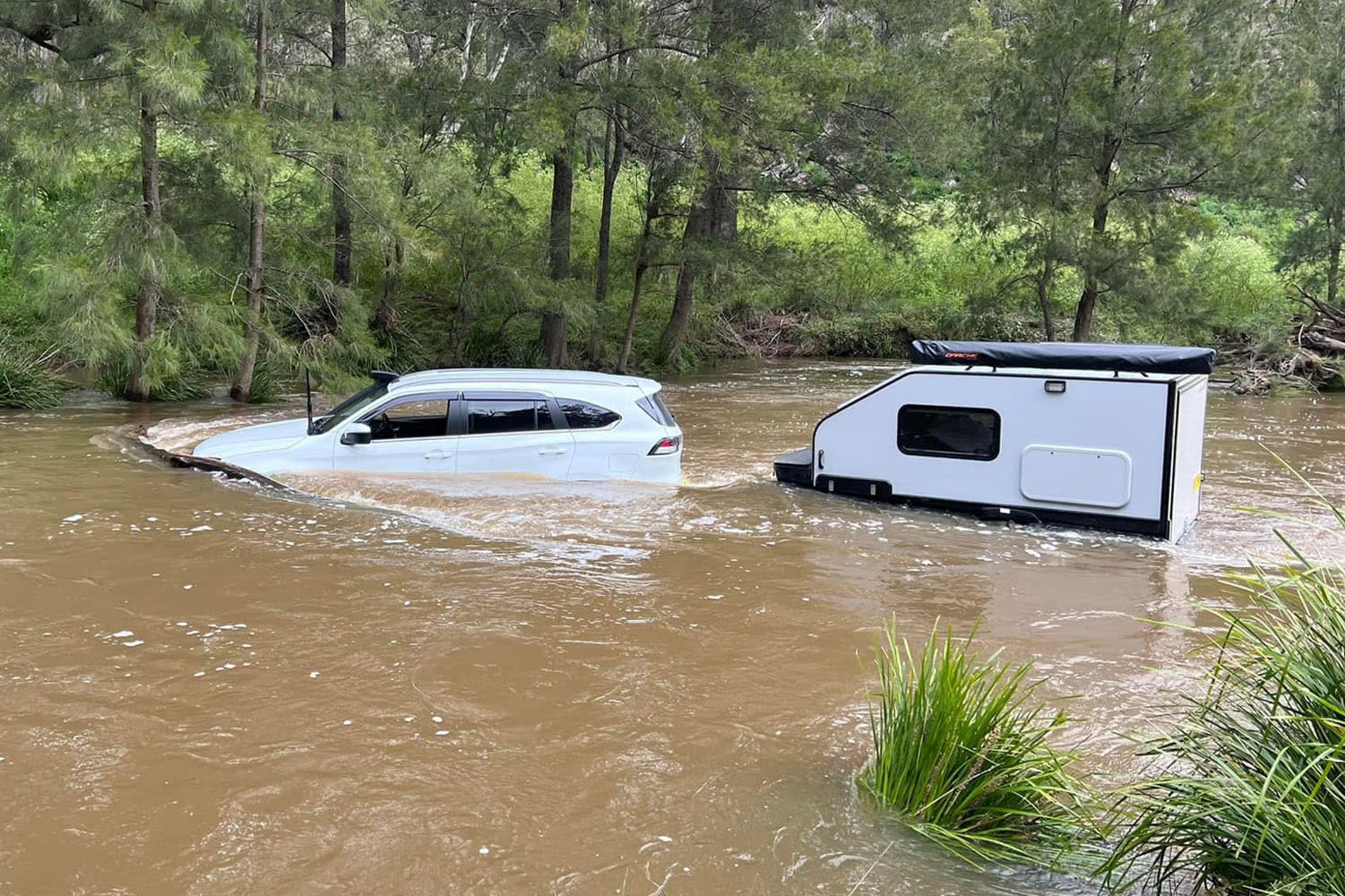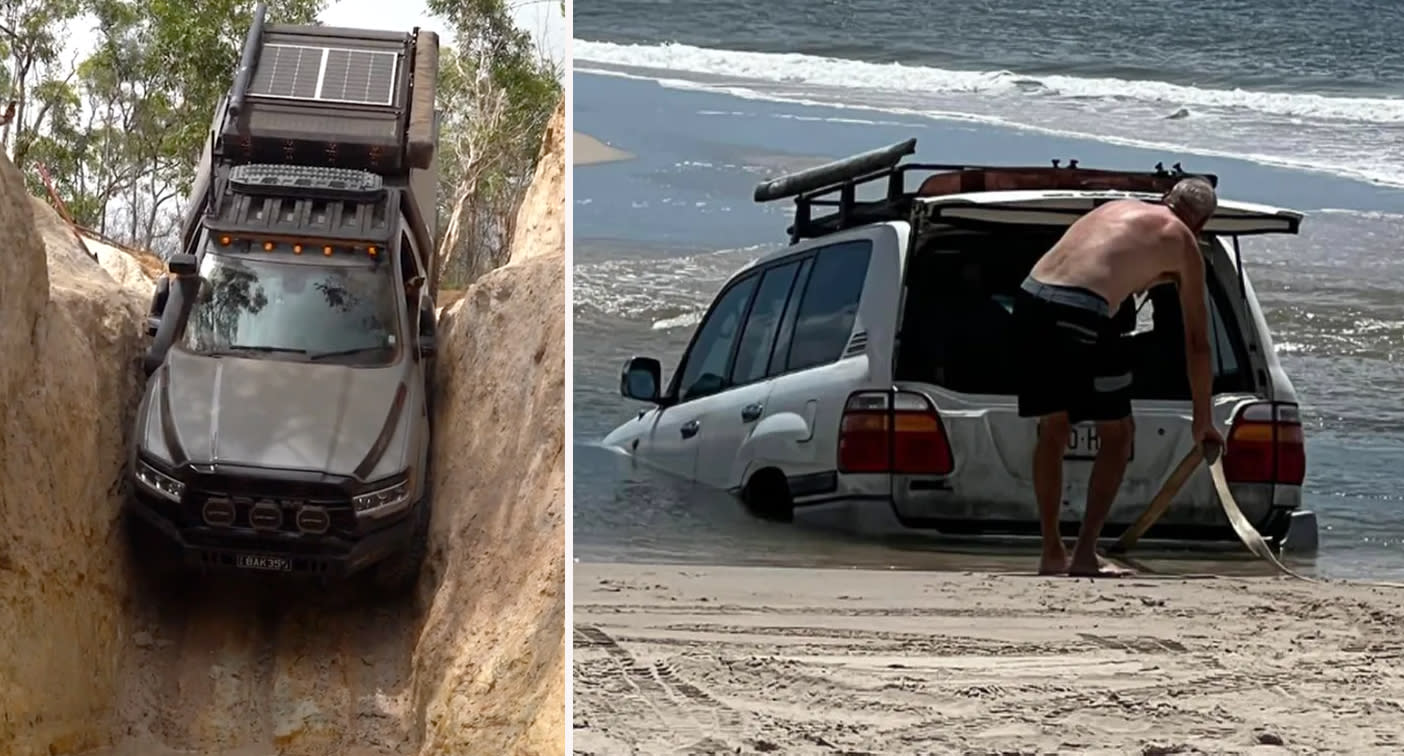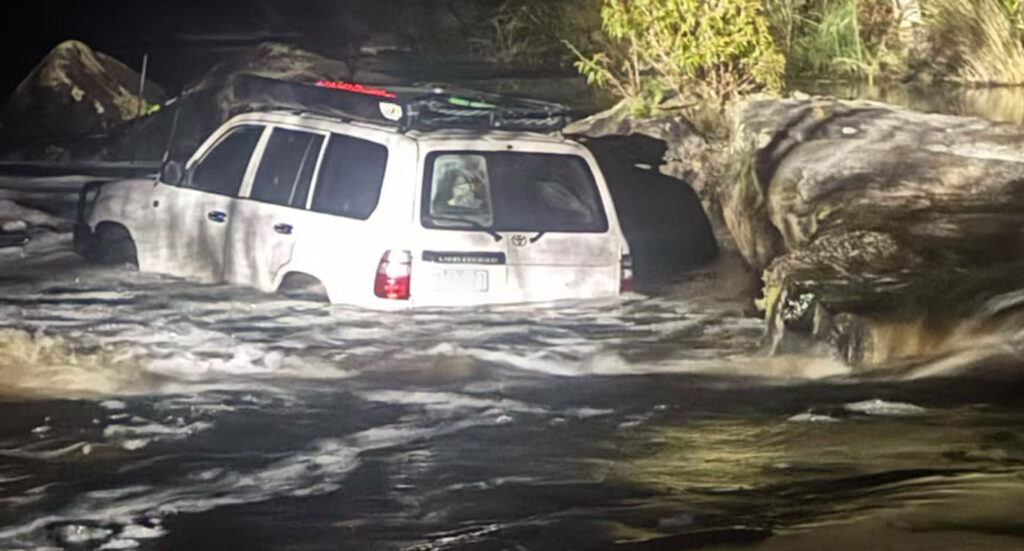Are you ready for an outdoor adventure? Think again!
Many 4WD owners are putting themselves and others at risk by attempting a common, yet dangerous, manoeuvre. We’re talking about river crossings, folks!
The Risks Are Real
A local man, who wishes to remain anonymous, shared a harrowing story with us about a rescue mission in Turon National Park, New South Wales. He helped save a driver from the “deep part” of a river, highlighting the importance of doing river crossings the right way.

“When exploring the outback, river crossings are common,” he said. “But there’s a way to do it properly.”
The Old School vs. New School Debate
The outdoor enthusiast explained that older 4WD vehicles rarely have issues with river crossings, but newer cars are a different story. “As amazing as they are, the electrical system and the engine are one. So if water gets in, [the car] will simply short and turn off,” he warned.
The Fatal Flaw of Newer 4WDs
The man believes that newer 4WDs can only handle deep crossings if they’ve been significantly modified. For example, installing a custom snorkel can help protect the engine from water and dust. But even then, it’s a risk.

Authorities Weigh In
The NSW State Emergency Service (SES) Director of Emergency Management, Assistant Commissioner Nicole Hogan, stressed that river crossings are a hazardous exercise, regardless of the age of the vehicle. “Crossing any river can result in vehicles getting stuck or washed away, requiring rescue,” she said.
Don’t Take the Risk!
The general advice is clear: avoid driving through rivers and floodwaters at all costs. “You should plan your trips accordingly, which may mean you need to find alternate routes,” Hogan advised.
Aussies Share Their Thoughts
Responding to the Facebook post, many agreed with the importance of exercising caution when it comes to river crossings. “Understand your vehicle and the prevailing conditions,” one said. “If in doubt, stay out.”
The Bottom Line
River crossings are a serious business, and it’s crucial to approach them with caution and respect. So, before you embark on your next outdoor adventure, remember: it’s better to be safe than sorry. Don’t take the risk, and never drive through flooded roads and waterways.

